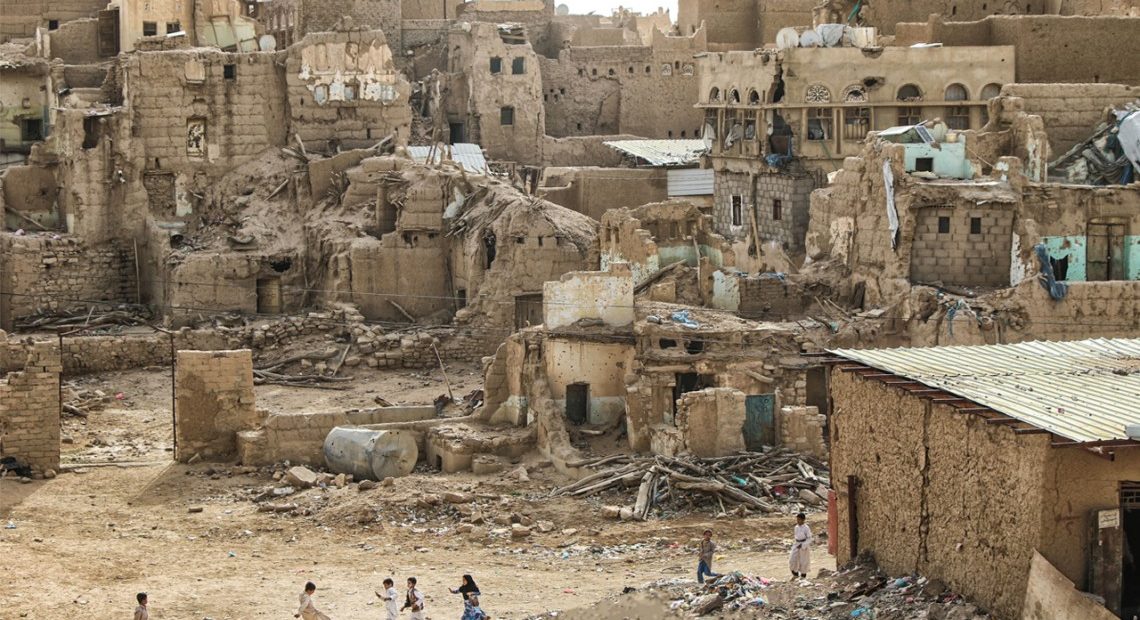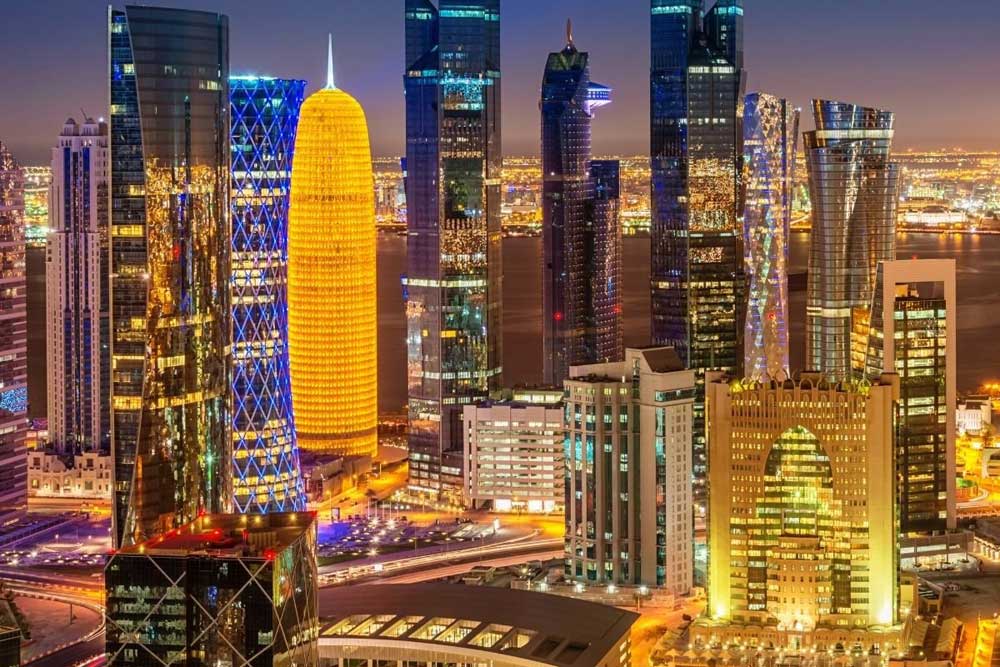[ad_1]
January was the deadliest month in Yemen since 2018, where one civilian was killed or injured every hour, according to Save the Children.
Qatar’s Foreign Minister Sheikh Mohammed bin Abdulrahman Al Thani emphasised the role of negotiations between Yemeni parties as being the ‘only’ means of resolving the Yemeni crisis.
His remarks came during a meeting with the United Nations resident and humanitarian coordinator in Yemen, David Gressly and United States envoy to Yemen, Tim Lenderking.
Since 2015, Yemen has been entangled in an ongoing war caused by political rifts between the Houthis and the Saudi-led coalition, along with the United Arab Emirates, which backs Abd Rabbuh Mansur Hadi’s government.
Prioritised on the agenda was the humanitarian situation in Yemen and the decaying floating Safer oil tanker that is anchored in the Red Sea north of the port city of Hodeidah.
floating safer oil tanker risk
The 45-year-old floating storage and offloading (FSO) facility holds 1.1 million barrels of oil, which is four times the amount of the Exxon Valdez, a tanker that was responsible for one of the ‘greatest environmental disasters’ in US’ history, the UN noted.
Earlier this month, Gressly outlined a plan to inhibit a potential stricken oil tanker disaster off in Yemen’s coastline, suggesting “critical funding and timely action” to address the what is described to be a a “time bomb sitting off Yemen’s Red Sea coast.”
It is at a looming risk of spilling a massive amount of oil due to leakages or an explosion.
Its production, offloading and maintenance has been halted since 2015 due to the Saudi-led coalition on the country, which gave the vessel beyond repair status.
If it were to happen, the spill would unleash a massive ecological and humanitarian catastrophe centred on a country already decimated by more than seven years of war.
David Gressly
Sheikh Mohammed Al Thani noted that intra-Yemeni negotiations should be held, in compliance with the outcomes of the national dialogue, the GCC initiative and relevant UN Security Council (UNSC) resolutions, especially Resolution No 2216, stressing Qatar’s assertive position on Yemen’s unity and territorial integrity.
The unsc and its ‘double standard’ approach to yemen
The Resolution 2216, adopted in 2015, demanded the cessation of violence in Yemen and the imposing of sanctions on individuals the UNSC Committee said were undermining the stability of Yemen. In 2015, the UN report particularly underlined the Houthi group and the immediate need to end their progression. However, the UNSC failed to officially address the Saudi-led coalition that placed a blockade on all sea, land, and air borders of Yemen in November 2017, which was as a response to a Houthi-led missile strike on Saudi’s Riyadh airport. They also failed to impose an arms embargo on the country due to its significant role in the ongoing humanitarian crisis.
While the coalition partially eased some restrictions in late November that year, it continues to prevent ‘much aid and nearly all commercial imports from reaching Houthi-controlled ports, which has an unlawfully disproportionate impact on civilians access to essential goods,’ Human Rights Watch reported.
In 2015, Saudi Arabia had the ‘full support’ of its key allies and arms suppliers, the US, the UK and France — ‘three permanent, veto-wielding UNSC members,’ Sanaa Center reported in 2020.
“Every resolution on Yemen in the past five years has been considered by a council overshadowed by Saudi Arabia’s influence and willingness to strategically spend money,” the report stated.
“The Saudis have in the past two decades purchased political buy-in from the US, UK and France in its regional affairs through intelligence exchanges, joint military training operations, billions of US dollars in arms purchases, oil deals and investments in each country’s economies and media.”
Qatar’s stance on yemen
In late March, Qatar welcomed the Saudi-led coalition’s decision to end military operations in Yemen throughout the fasting month of Ramadan.
During the first week of April, the Gulf country also welcomed the two-month UN-brokered ceasefire in Yemen on Saturday, which was the first to take place since 2016 following years of escalations.
In a statement, Qatar’s Ministry of Foreign Affairs affirmed the country’s support for a political resolution in Yemen and achieving a “lasting ceasefire” in a “comprehensive political track and national reconciliation” manner.
With the introduction of such a ceasefire, fuel ships will now be able to enter into the Hodeidah ports as commercial flights operate in and out of Sana’a airport. The reopening of the Houthi-controlled port would alleviate the suffering of millions of people in Yemen at risk of famine.
While citing a copy of the truce deal, Reuters reported that 18 fuel shops will be able to access the port throughout the entirety of the two months. Two weekly flights will also operate from Sanaa to Jordan and Egypt.
Follow Doha News on Twitter, Instagram, Facebook and Youtube
[ad_2]
Source link

















Leave a Reply